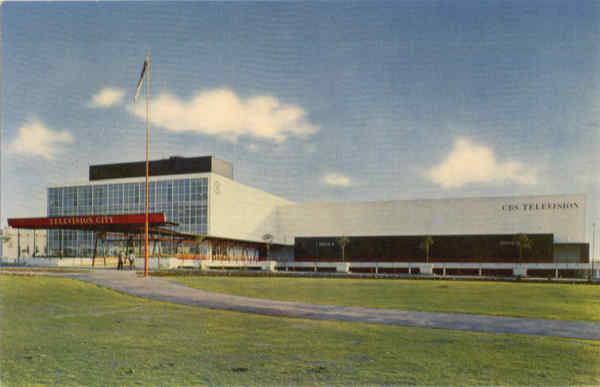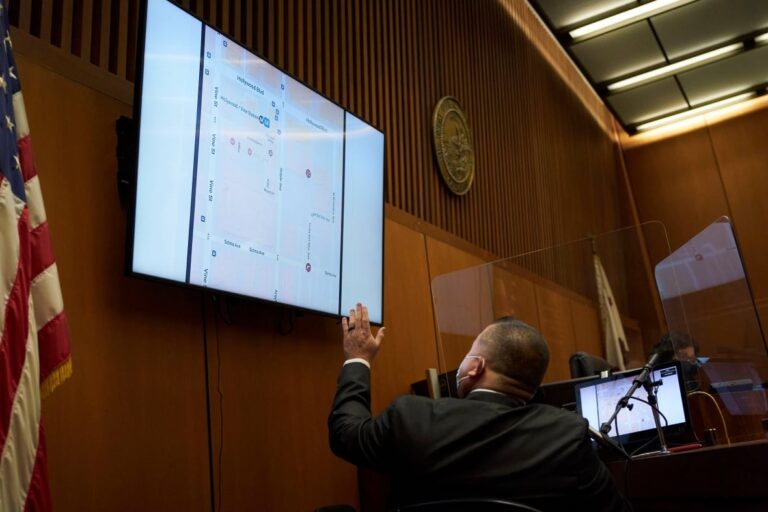
Audience
- Sentiment: Mixed
- Political Group: Mixed/Local
- Age Group: Adults
- Gender: All genders
Overview
- Television City in Los Angeles is facing a $1 billion expansion plan that has divided community members and industry workers.
- Supporters believe the expansion will create jobs and strengthen the local entertainment industry, while opponents fear increased traffic and environmental issues.
- Legal battles are emerging as local businesses challenge the expansion, raising concerns about community well-being and transparency.
The Great Debate Over Television City: A $1 Billion Expansion on the Table
Imagine living in a neighborhood where the sounds of film crews, actors, and bright lights make your everyday life feel like a Hollywood movie. This is exactly what those living near Television City in Los Angeles experience. However, this iconic location is at the center of a heated debate. A massive $1 billion expansion plan aims to modernize Television City, but it has sparked division among various groups, from industry workers to local residents. Let’s unpack this complex situation!
What’s the Big Deal?
Television City was established in the 1950s and has played a significant role in the entertainment industry ever since. It’s where popular shows have been filmed, and it has become synonymous with television excellence. So, when Hackman Capital, the company behind the expansion, proposed to enhance this landmark with new production facilities, you might expect everyone to be on board. After all, who wouldn’t want to see their favorite shows being made right in their backyard? However, not everyone agrees with this vision.
Many community members and businesses are raising concerns. They worry that the expansion will lead to significant traffic issues, making it harder for local residents to go about their daily lives. More vehicles mean more congestion, especially in an already busy area. Imagine trying to get to school or hanging out with friends while surrounded by frustrated drivers stuck in a traffic jam. Doesn’t sound fun, right?
The Supporters
On one side of the argument, we have the Entertainment Union Coalition, a group that represents thousands of workers in the television and film industry. They’re excited about the expansion because they believe it will create jobs and bring more productions back to Los Angeles. When Hollywood was becoming the global center for entertainment, it employed many people in various roles—from actors to grips (those who help move heavy equipment). The coalition argues that this expansion will keep jobs in L.A. and further establish the city as a hub of creativity.
Supporters see this project as a lifeline for a struggling industry. With streaming services and a growing demand for high-quality content, they argue that more facilities are needed to meet the rising expectations. The expansion is intended to modernize production spaces, enabling crews to work more efficiently on set and ultimately produce better shows and movies.
The Opponents
However, not everyone is clapping their hands in approval. Local businesses and neighborhood groups are deeply concerned about what this expansion really means for their community. One major point of contention is the potential for increased traffic. With more production crews and visitors anticipated, local residents fear that their quaint community will morph into a bustling tourist attraction, causing chaos on their roads. Picture it: your favorite cozy café transforming into a crowded spot filled with tourists, or the peaceful sound of birds chirping being drowned out by loud trucks and equipment.
Moreover, as the lawsuit filed by The Grove—an upscale shopping plaza nearby—points out, the expansion could violate environmental regulations. The Grove argues that not only does the development risk the well-being of local ecosystems, it lacks transparency regarding the true extent of its impact. Without clear plans, residents are left wondering what kind of facilities will be built and what it will mean for their surroundings.
The Legal Battle
As you might have guessed, this tension has led to legal wrangling. When local businesses feel threatened and even ordinary residents start to worry about their quality of life, lawsuits often follow. The Grove’s legal action against Hackman Capital aims to halt the expansion until more clarity and environmental assessments are provided. It’s not uncommon to see these types of disputes in large urban areas where development booms alongside increasing populations. These situations raise questions about whose interests are prioritized: the giant corporations looking to expand or the communities that have existed for generations.
A City in Transition
Los Angeles is no stranger to change. It’s a vibrant city filled with stars, artists, and entrepreneurs. It has always been a melting pot of cultures and dreams, but with that comes conflict. When profound financial interests intersect with everyday life, the outcomes can be unpredictable and sometimes divisive.
In many ways, this controversy shines a light on a broader discussion about urban development. Should cities prioritize economic growth and the interests of corporations, or should they focus on the well-being of local communities and the environment? These issues resonate far beyond the borders of California. As the world grapples with climate change and sustainability, the debate over whether to develop or preserve will continue to play a crucial role in shaping our cities and neighborhoods.
Looking to the Future
The expansion of Television City presents both exciting opportunities and daunting challenges. For supporters, it means more jobs, better facilities, and an even more dynamic entertainment industry. For opponents, it raises significant questions about the future of their neighborhood, the environment, and the traffic that could overwhelm their streets.
As Hackman Capital continues to push forward with its plans, it promises to redesign production facilities with modern technology to retain talent and resources critical to the entertainment industry. Yet the cloud of opposition looms. Will they be able to reshape their vision to address the community’s concerns effectively? Or will the voices of local residents ultimately outweigh the promises of modernization?
Join the Conversation!
As you can see, the expansion of Television City is not just another construction project; it’s a crossroads where the future of a community and an industry hang in the balance. So, what do you think? Should the expansion happen despite the potential traffic chaos and environmental concerns? Or is it more important to preserve the local community and make sure that changes benefit everyone? Leave your thoughts in the comments below! Your opinion matters in this ongoing discussion!






